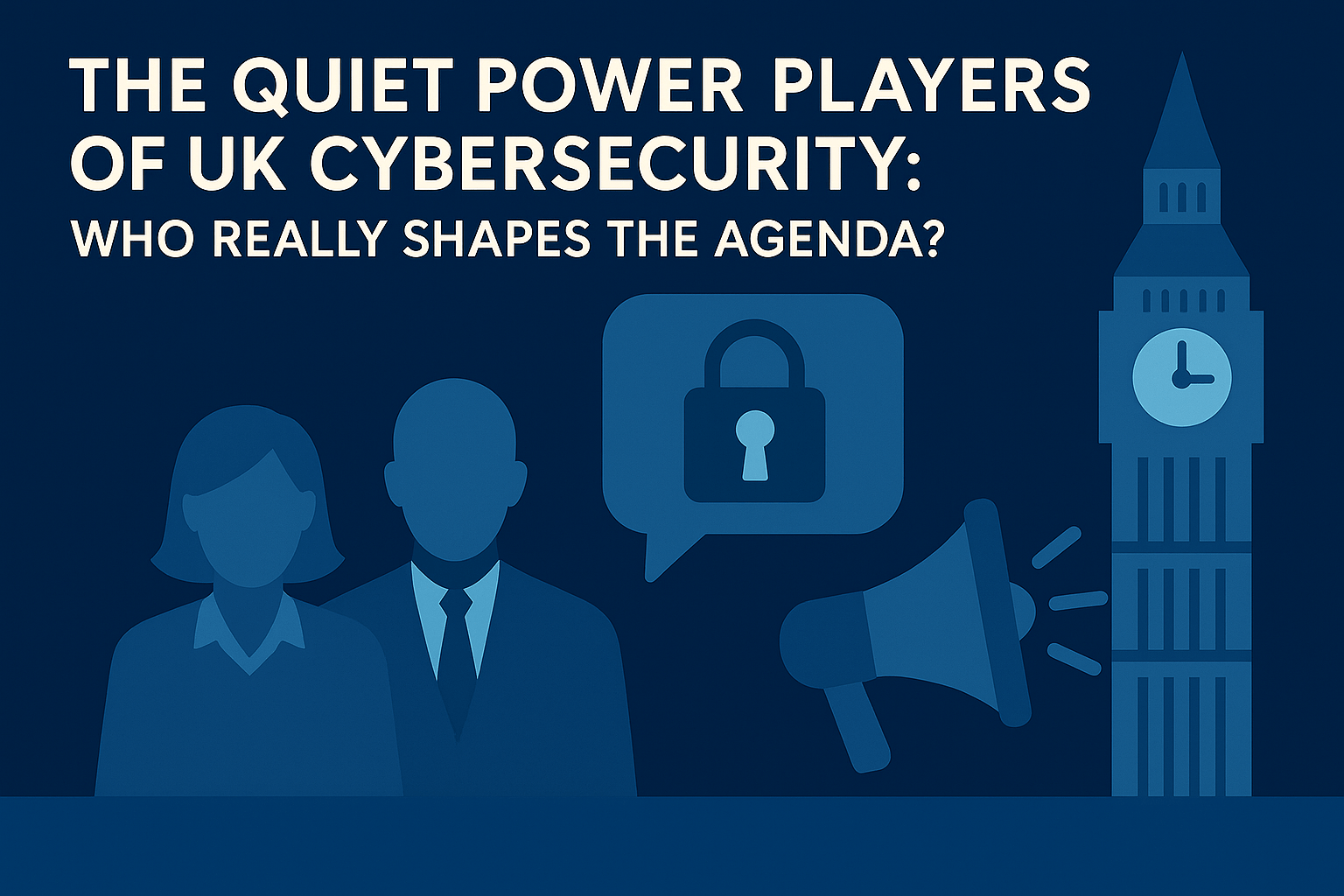Behind the acronyms and front-facing roles lies a network of advisors, committees, and convenors quietly setting the pace for cyber strategy in Britain. When we talk about power in UK cybersecurity, we often mention the big institutions… NCSC, DSIT, UK Cyber Security Council, or heavyweight companies like BT, BAE Systems, and Microsoft. But step closer and a more nuanced picture emerges: one shaped less by job titles and more by trust, networks, and proximity to policy formation. This article explores the real power players… not always in the spotlight, but instrumental in influencing policy, procurement, public guidance, and funding flows. These are the advisors, secondments, committee members, and convenors who quietly shape the UK’s cyber agenda.
Content
- Content
- 1. Policy-Shaping Advisors and Special Committee Members
- 2. Convenors and Ecosystem Orchestrators
- 3. Trusted Technical Minds: The “Unofficial CTOs”
- 4. Influencers Behind the Skills and Education Agenda
- 5. Who Gets Funded and Why: Programme Directors and Assessors
- 6. How to Engage the Quiet Power Network
- Final Thoughts
- References
1. Policy-Shaping Advisors and Special Committee Members
Special Advisors (SpAds) and Civil Service Champions
- Often seconded from industry, academia, or think tanks to work inside DSIT, Home Office, or Cabinet Office
- Influence language in public consultations, investment priorities, and ministerial briefings
- Rarely public-facing, but critical to translating government ambition into action
Standards Committees and Framework Architects
- CIISec, UKCSC, and BCS host working groups on certification frameworks, national standards, and career pathways
- Individuals involved in SFIA, NCSC assurance schemes, or chartership mapping quietly shape who gets recognised as a cyber professional
Public Procurement Gatekeepers
Cyber leads within Crown Commercial Service (CCS) and large framework managers (e.g. G-Cloud, DOS) can significantly influence vendor visibility and SME access to public sector contracts
2. Convenors and Ecosystem Orchestrators
SASIG (The Security Awareness Special Interest Group)
- Over 6,000 vetted members
- Provides a trusted environment for CISOs, policymakers, and solution providers to speak freely
- Often where early consensus forms around emerging topics… before formal policy
Innovation Alliance for the West Midlands (IAWM)
- Not just a regional group: its Cyber Working Group (WM CWG) is influencing national thinking on skills, investment, and local cluster development
- A model for how regional convenors drive national impact by bringing together academia, business, and government
TechUK Working Groups
- Members of TechUK’s Cyber, AI, and Data Protection groups feed directly into government consultations
- Companies here often receive advanced warning of upcoming regulation or funding
3. Trusted Technical Minds: The “Unofficial CTOs”
NCSC i100 Participants
- Individuals from private sector organisations embedded within NCSC
- Co-develop tools, guidance, and detection methodologies that often become public standards
- Influence often comes from writing the code, not the memo
Cyber Tzar / Panaseer / Orpheus
- Platforms that shape how the UK measures cyber risk, especially in insurance and SME ecosystems
- Quietly influence procurement decisions, frameworks, and even investor priorities
4. Influencers Behind the Skills and Education Agenda
- Leaders of bootcamps, CyberFirst, Neurodivergent in Cyber initiatives, and regional academies often hold outsized influence over early-career cyber development
- Bodies like ISC2, ISSA UK, and Women in Cyber Wales may not hold official policy power, but they direct where talent, sponsorship, and mentoring flow
5. Who Gets Funded and Why: Programme Directors and Assessors
- CyberASAP assessors, Cyber Runway judges, and UKRI panellists play a gatekeeping role over early-stage funding
- A small number of individuals review dozens of bids annually, influencing who gets scaled, who gets paused, and who gets introduced to VCs
6. How to Engage the Quiet Power Network
- Be present in working groups – especially those run by UKCSC, CIISec, TechUK, or NCSC
- Volunteer as an assessor, mentor, or speaker – these roles build trust and visibility over time
- Offer thought leadership, not just sales pitches – write for BCS, IET, or ACM
- Understand the informal networks – WhatsApp groups, Slack communities, and alumni groups often precede policy shifts
Final Thoughts
The UK’s cyber ecosystem is shaped not just by policy, but by people, those who convene, co-create, and quietly nudge agendas forward. Influence here isn’t always loud. It’s built through consistency, contribution, and credibility.
In cybersecurity, as in diplomacy, real power often sits just off-stage.
References
- Inside the UK Cyber Ecosystem: A Strategic Guide in 26 Parts
- The Insider’s Guide to Influencing Senior Tech and Cybersecurity Leaders in the UK
- The Quiet Power Players of UK Cybersecurity: Who Really Shapes the Agenda?
- Cyber Across UK Government: Departments, Programmes, and Policy Players
- Cyber Clusters and Regional Powerbases: Influence Beyond London
